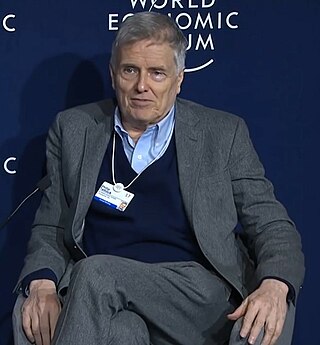Confirmation bias is the tendency to search for, interpret, favor, and recall information in a way that confirms or supports one's prior beliefs or values. People display this bias when they select information that supports their views, ignoring contrary information, or when they interpret ambiguous evidence as supporting their existing attitudes. The effect is strongest for desired outcomes, for emotionally charged issues, and for deeply entrenched beliefs. Confirmation bias is insuperable for most people, but they can manage it, for example, by education and training in critical thinking skills.
In social psychology, fundamental attribution error, also known as correspondence bias or attribution effect, is a cognitive attribution bias where observers underemphasize situational and environmental factors for the behavior of an actor while overemphasizing dispositional or personality factors. In other words, observers tend to overattribute the behaviors of others to their personality and underattribute them to the situation or context. Although personality traits and predispositions are considered to be observable facts in psychology, the fundamental attribution error is an error because it misinterprets their effects.

Confidence is the state of being clear-headed: either that a hypothesis or prediction is correct, or that a chosen course of action is the best or most effective. Confidence comes from the Latin word fidere which means "to trust". In contrast, arrogance or hubris is a state of unmerited confidence—belief lacking evidence and/or a reason. Overconfidence or presumptuousness is excessive belief in success without regard for potential failure. Confidence can be a self-fulfilling prophecy, as those without it may fail because they lack it, and those with it may succeed because they have it rather than because of an innate ability or skill.
Susan Tufts Fiske is an American psychologist who serves as the Eugene Higgins Professor of Psychology and Public Affairs in the Department of Psychology at Princeton University. She is a social psychologist known for her work on social cognition, stereotypes, and prejudice. Fiske leads the Intergroup Relations, Social Cognition, and Social Neuroscience Lab at Princeton University. Her theoretical contributions include the development of the stereotype content model, ambivalent sexism theory, power as control theory, and the continuum model of impression formation.
The negativity bias, also known as the negativity effect, is a cognitive bias that, even when of equal intensity, things of a more negative nature have a greater effect on one's psychological state and processes than neutral or positive things. In other words, something very positive will generally have less of an impact on a person's behavior and cognition than something equally emotional but negative. The negativity bias has been investigated within many different domains, including the formation of impressions and general evaluations; attention, learning, and memory; and decision-making and risk considerations.

Divergent thinking is a thought process used to generate creative ideas by exploring many possible solutions. It typically occurs in a spontaneous, free-flowing, "non-linear" manner, such that many ideas are generated in an emergent cognitive fashion. Many possible solutions are explored in a short amount of time, and unexpected connections are drawn. Following divergent thinking, ideas and information are organized and structured using convergent thinking, which follows a particular set of logical steps to arrive at one solution, which in some cases is a "correct" solution.
Self-enhancement is a type of motivation that works to make people feel good about themselves and to maintain self-esteem. This motive becomes especially prominent in situations of threat, failure or blows to one's self-esteem. Self-enhancement involves a preference for positive over negative self-views. It is one of the three self-evaluation motives along with self-assessment and self-verification . Self-evaluation motives drive the process of self-regulation, that is, how people control and direct their own actions.

Philip E. Tetlock is a Canadian-American political science writer, and is currently the Annenberg University Professor at the University of Pennsylvania, where he is cross-appointed at the Wharton School and the School of Arts and Sciences. He was elected a Member of the American Philosophical Society in 2019.
Impression formation in social psychology refers to the processes by which different pieces of knowledge about another are combined into a global or summary impression. Social psychologist Solomon Asch is credited with the seminal research on impression formation and conducted research on how individuals integrate information about personality traits. Two major theories have been proposed to explain how this process of integration takes place. The Gestalt approach views the formation of a general impression as the sum of several interrelated impressions. As an individual seeks to form a coherent and meaningful impression of another individual, previous impressions significantly influence the interpretation of subsequent information. In contrast to the Gestalt approach, the cognitive algebra approach asserts that individuals' experiences are combined with previous evaluations to form a constantly changing impression of a person. A related area to impression formation is the study of person perception, making dispositional attributions, and then adjusting those inferences based on the information available.
Goal orientation, or achievement orientation, is an "individual disposition towards developing or validating one's ability in achievement settings". In general, an individual can be said to be mastery or performance oriented, based on whether one's goal is to develop one's ability or to demonstrate one's ability, respectively. A mastery orientation is also sometimes referred to as a learning orientation.
Neal Roese holds the SC Johnson Chair in Global Marketing at the Kellogg School of Management at Northwestern University. Trained as a social psychologist, he is most well known for his work on judgment and decision making, counterfactual thinking, and regret.
The false-uniqueness effect is an attributional type of cognitive bias in social psychology that describes how people tend to view their qualities, traits, and personal attributes as unique when in reality they are not. This bias is often measured by looking at the difference between estimates that people make about how many of their peers share a certain trait or behaviour and the actual number of peers who report these traits and behaviours.
Monica Rose Biernat is a social psychologist known for her research on social judgment, stereotyping, prejudice, and discrimination. She is a University Distinguished Professor of Psychology at the University of Kansas.

Control deprivation describes the act of not giving an individual their desires, wants and needs in a deliberate way to control that individual. This is often achieved through acts such as lack of affection, acts indifferent and detached, failure to respond, emotionally distant, deliberately with holding sex, shifts blame to the individual and other techniques. Control deprivation can lead to a wide range of effects, such as causing depression, leading people to aggression, increased social class effects and the use of social stereotypes in making judgements on people as well as product acquisition. Lack of control over a situation can significantly affect a person, changing the way a person thinks and acts. This is often exploited by individuals, businesses and in other situations, however individuals are also very capable of finding alternative means to regain the control that was previously lost and regaining personal control.
Antonette M. Zeiss is an American clinical psychologist. Zeiss was chief consultant for mental health services at the Central Office of the United States Department of Veterans Affairs – the first woman and the first psychologist and nonphysician to hold this position. In 2013 she received the APA Award for Lifetime Contributions to Psychology from the American Psychological Association (APA).
Puritanical bias refers to the tendency to attribute cause of an undesirable outcome or wrongdoing by an individual to a moral deficiency or lack of self control rather than taking into account the impact of broader societal determinants. An example might be, "These people sit around all day in their apartments on welfare watching TV, but won't take the time to get out and find a job!" In this case, a selection of persons might have existed for some time under dire economic and/or socially oppressive circumstances, but individuals from that selection have been cognitively dis-empowered by these circumstances to decide or act on decisions to obtain a given goal.
Camille B. Wortman is a clinical health psychologist and expert on grief and coping in response to traumatic events and loss. She is an Emeritus Professor of Psychology at Stony Brook University.
In social psychology, social projection is the psychological process through which an individual expects behaviors or attitudes of others to be similar to their own. Social projection occurs between individuals as well as across ingroup and outgroup contexts in a variety of domains. Research has shown that aspects of social categorization affect the extent to which social projection occurs. Cognitive and motivational approaches have been used to understand the psychological underpinnings of social projection as a phenomenon. Cognitive approaches emphasize social projection as a heuristic, while motivational approaches contextualize social projection as a means to feel connected to others. In contemporary research on social projection, researchers work to further distinguish between the effects of social projection and self-stereotyping on the individual’s perception of others.
Social identity threat is a theory in social psychology derived from social identity theory to explain the different types of threats that arise from group identity being threatened as opposed to personal identity. This theory distinguishes between four distinct types of social identity threats: categorization threat, distinctiveness threat, threats to the value of social identity, and acceptance threat. Each type is associated with particular social contexts that make the threats more or less likely to occur. This theory emphasizes how the level of commitment with the social identity shapes the nature of the threat experienced.
David Lewis Hamilton is an American social psychologist and researcher currently working at the University of California, Santa Barbara.




